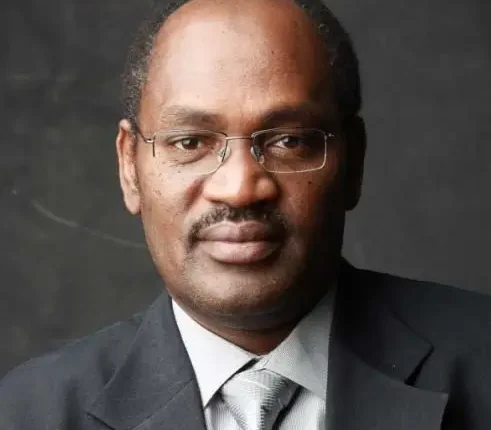“Secularism and the Religious State: Where is the Truth in the Elite’s Debate?”

By: Ramadan Ahmed
These days, online platforms are overwhelmed with intense debate among political elites regarding the most suitable form of governance for Sudan: secularism or a religious state. In this article, we will approach the topic logically and rationally—steering away from the heated rhetoric often associated with this debate—while addressing the negative practical aspects of secularism observed in Western societies.
1. The Concept of a Religious State is Foreign to Islam
The idea of a “religious state” is essentially a Western construct rooted in Christianity. Since Christianity lacks a political or legislative framework, clergy historically inserted religious authority into politics to legitimize political tyranny and maintain their own social and religious status. As a result, the Church dominated public life and persecuted scientists.
This led to a backlash against religious authority and an embrace of scientific research and exploration, sparking broad advancements. It should be noted that the fault was not with Christianity as a religion but with the individuals who exploited it for personal gain—something that can apply to Islam, too.
2. Secularism’s Exclusion of Religion Promotes Self-Interest Over Morality
Secularism removes religion from public life, making human interest the primary reference for political action, often dictated by powerful financial elites who dominate political systems. These elites—not the people—have driven colonialism, slavery, and resource exploitation across the Third World.
Even after formal independence, the West continued to support coups and authoritarian regimes to ensure loyalty and the flow of raw materials. Thus, Western interests, which form the foundation of secular state policy, do not allow for genuine democratic systems in the Muslim world, as the people’s will could produce national leaders who resist exploitation. We’ve seen elected governments overthrown in Tunisia, Pakistan, Palestine, and Turkey, simply because they came to power through popular vote.
We won’t delve here into the secular system’s historical crimes in Africa, such as the enslavement and transatlantic transport of millions of Africans in conditions unfit for animals—many of whom died en route and were thrown overboard to feed fish. Western material civilization was built on the shoulders of these slaves.
3. Secularism in Muslim Societies Differs from Western Secularism
The secularism proposed in Muslim countries is not the same as Western secularism. In fact, the West itself would not allow a secular system in Muslim nations that permits genuine democratic elections, as such elections may bring undesired outcomes.
Secularists in Muslim societies often exhibit extreme hostility toward Islam. Once in power—usually through coups or manipulated elections—they severely suppress Islamic voices. This trend has continued since the post-colonial period, with Arab regimes ruling with iron fists under the protection of Western powers that claim to champion secularism.
4. Judging Islam by Flawed Models is Misleading
Critics often judge Islamic governance based on imperfect implementations in countries like Iran, Saudi Arabia, or Sudan—even though leaders in those countries admit the flaws. They overlook the historical reality that the Muslim world once produced a thriving civilization based on Islamic principles, which valued both the spiritual and material aspects of human life and encouraged scientific exploration and societal advancement.
The Islamic state is built upon three pillars: justice, freedom, and rights, all strongly emphasized in the Qur’an and practically implemented in early Islamic history. The objectives of Islamic law focus on five essentials:
Preservation of religion (freedom of belief)
Preservation of life (right to life)
Preservation of intellect (protection of reason)
Preservation of lineage (family and honour)
Preservation of property (right to ownership)
These principles apply to both Muslims and non-Muslims in Muslim lands, which is why the concept of “minorities” was absent in Islamic history—because all communities enjoyed full rights and freedom of belief.
5. Democracy Can Be Separate from Secularism
Democracy does not have to be synonymous with secularism. A state can be democratic and still draw from its people’s religious and cultural values as the moral foundation for governance. Associating democracy exclusively with secularism is misleading.
In fact, many European constitutions explicitly reference Christianity or specific denominations. Some even drew inspiration from Islamic legal traditions such as the Maliki school, particularly the French constitution.
We must also differentiate between the Islamic state and the secular state. In Islam, the community is central, and the state exists to serve it. The ruler is accountable and acts as a servant to society. In secularism, the state is central, and the individual is merely a tool for production, often stripped of meaningful citizenship or family values.
Secular systems promote individualism, weaken family structures by encouraging extramarital relationships, and discourage marriage through burdensome laws. In contrast, the Islamic state values the individual spiritually and materially, facilitates marriage, and upholds the family unit as the foundation of society. It fosters compassion and social solidarity through mechanisms like zakat (almsgiving), charity, and fasting alms—reducing envy and social division.
A New Call: Religion’s Return to the Public Sphere
Due to modernity’s failure to fulfill promises of prosperity, justice, and freedom, a growing number of Western thinkers are calling for religion’s return to public life. Though space does not allow for an exhaustive list, key figures include:
Charles Taylor (b. 1931)
John Rawls (1921–2002)
Jürgen Habermas (b. 1929)
Wael Hallaq
These scholars argue that secularism, stripped of ethics and religion, has reduced life to a soulless material existence.
Conclusion:
Secularism has not delivered true human well-being, even in the West. People still suffer under relentless material demands, with rising suicide rates even among the wealthy. Developing nations continue to suffer under a global secular order that supports dictatorship, stirs unrest, and facilitates genocide—as in Gaza—while using hunger to subjugate entire populations.
Hence, this model cannot be considered ideal for humanity. Based on these realities, nations—and Sudan in particular—must strive to create a political system rooted in religious values, social traditions, and communal norms to ensure justice, freedom, and dignity for all citizens through the unleashing of their human potential.
Shortlink: https://sudanhorizon.com/?p=5379

